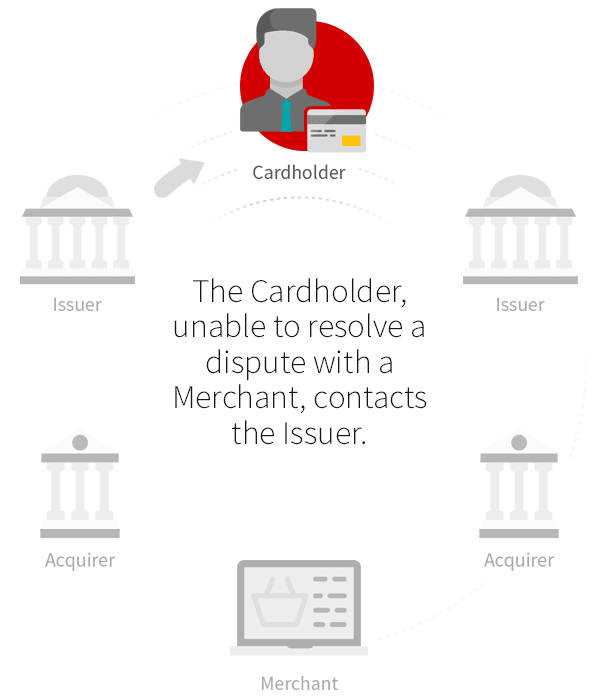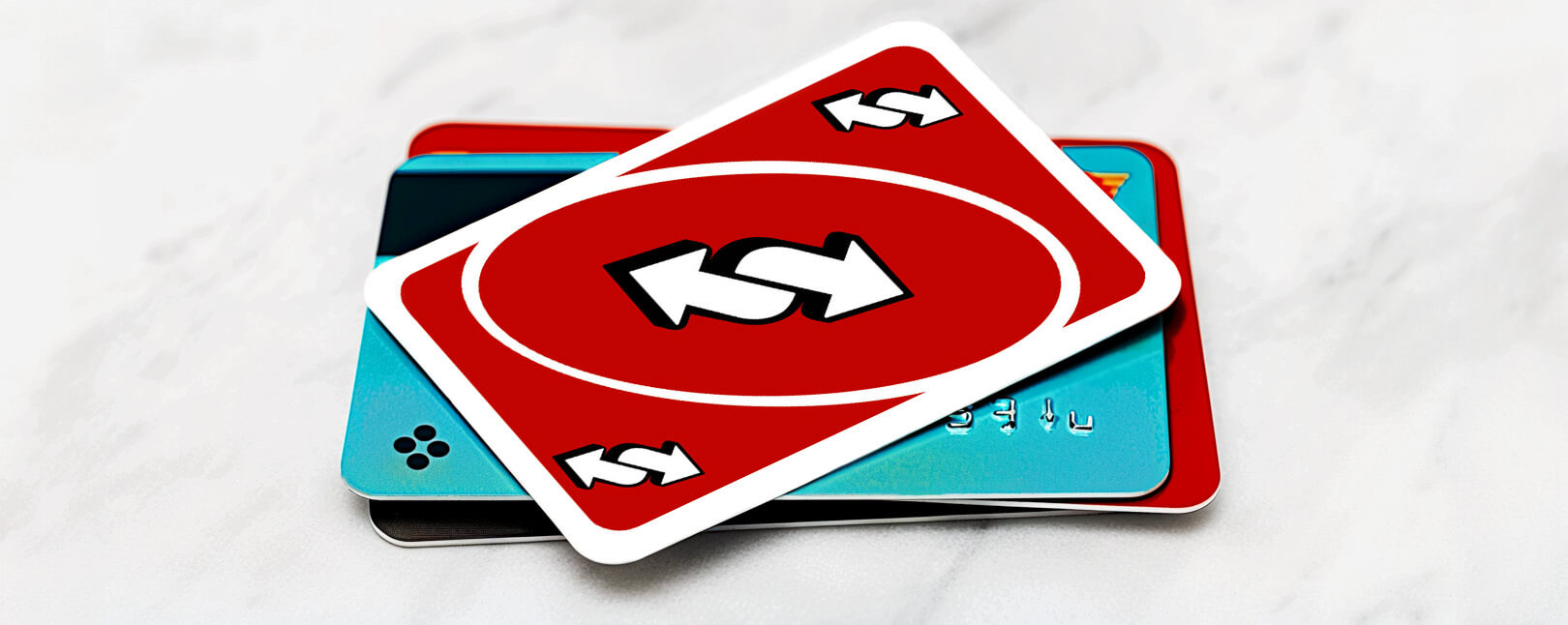The Chargeback Reversal Process Can Help You Recover Sales, Avoid Fees, & Protect Your Business
When was the last time you opened up your wallet, grabbed a fistful of bills, wadded them up, and chucked them in the trash?
Okay, you’ve probably never done that in a literal sense. Nobody likes throwing money away. But, that’s basically what you’re doing if you’re not routinely submitting responses to chargebacks.
81% of US cardholders freely admit to having disputed at least one transaction out of convenience, rather than because it was a genuine case of fraud or merchant error. This is a practice called first-party chargeback misuse — or “friendly fraud,” as it’s more commonly known — and it can be a serious drain on your resources. Data published by Visa suggests that roughly three out of four chargebacks requested by customers are probably cases of this first-party chargeback abuse.
So, what are you supposed to do with that information? Simple: start fighting back.
In this article, we’ll delve into the ins and outs of the chargeback reversal process. We’ll explore how to prepare for disputes, how to respond, and how to apply these methods to your business strategy.
Recommended reading
- Mastercard Chargeback Arbitration: What You Should Know
- The Pre-Arbitration Chargeback Process: Explained
- Chargeback Rebuttal Letters: Templates & Tips for Responses
- Arbitration Chargeback: The Last Step in the Dispute Process
- Second Presentment: The Key to Chargeback Recovery
- 4 Easy Steps to Win Your Next Chargeback Response
What is a Chargeback Reversal?
- Chargeback Reversal
A chargeback reversal is a formal acknowledgment by an issuing bank that a transaction was valid, and that the cardholder’s chargeback claim was invalid. When a merchant wins a chargeback reversal, the bank will return the funds being disputed.
[noun]/chahrj • bak • rə • vər • səl/
You have two options if a consumer files a dispute against your business. You can either accept the chargeback, or you can challenge it. The process to obtain a chargeback reversal is known as representment, because you literally “re-present” the transaction to the bank.
We won’t get too far into the weed on representment; if you’re interested, we’ve got this massive resource that goes into all the ins and outs of the process. Instead, we’ gonna focus on what happens after representment is done.

If you successfully re-present the chargeback to the issuer, and they find your evidence and other documents compelling, they’ll undo the chargeback. The bank will debit the original transaction funds from the cardholder’s account and return them to your acquirer, who will then credit the funds to your account.
This is what we mean when we talk about a chargeback reversal. The issuer literally reverses the chargeback and returns the disputed funds.
Every time you receive a chargeback, your bank will hit you with a chargeback fee (usually around $20 per dispute). This fee is meant to cover the acquirer’s expenses resulting from processing the chargeback. Even if a chargeback gets reversed, the acquirer will not typically refund this fee.
Why Chargeback Reversals Matter
Ignoring chargebacks is really not an option. At least, assuming that you’re aiming for long-term business success, of course.
Chargebacks themselves can be a huge drain on your resources. You lose sales revenue and merchandise, and get hit with those chargeback fees we mentioned above. Plus, each chargeback counts against your chargeback-to-transaction ratio. The long-term consequences can be so severe, it could jeopardize your business’s future.
Letting chargeback go unchallenged is a sure-fire recipe for disaster. In contrast, each chargeback reversal you win helps you achieve four key goals:
Still not convinced? Let’s try a little experiment.
We created a handy ROI calculator, which you can fiddle around with below. This nifty little tool lets you key in your average monthly chargebacks, as well as your average transaction amount. Take a look, and see how much you’re currently losing in terms of sales revenue, merchandise, fees, and added overhead.
What are Chargebacks REALLY Costing You?
Annual Revenue Lost:
+ Chargeback Fees:
+ Admin Fees:
+ Cost of Goods & Shipping:
Total Annual Chargeback Cost:
Now, imagine if you could recover up to 90% of that total this month. Pretty serious business, right?
Why are Chargeback Reversals so Difficult?
So, chargeback reversals are clearly worth pursuing. But, why is the success rate so low?
Recent survey data found that the average merchant responded to about 53% of chargebacks. However, the average net recovery rate, or the portion of successful chargeback reversals as a share of all chargeback issued, stood at just 27%. Now, remember earlier when we said that three out of four chargebacks are probably friendly fraud?
What’s going on? Why are merchants like you covering so little?
As a merchant, the odds are clearly against you. The cardholder makes a claim to the bank, and you have to provide sufficient evidence to explain why that claim is invalid. You’re also on a tight timetable; usually, there are only a few days available to investigate, gather evidence, draft your response, and submit the documentation.
Winning a chargeback reversal is hard. That can’t be an excuse to forget about it, though. You just need to adopt a few best practices to improve your odds.
Chargeback Reversals: The Dos and Don’ts
The first thing to know before you start preparing a chargeback response is that it’s going to be a process. There is no such thing as “quick” when it comes to chargeback reversals. So, when preparing a healthy representment package, here are a few rules of thumb to follow:
DO...
- Be Prepared: Representment is a complex, time-consuming process. Factor preparation and preparedness into your chargeback management system.
- Know when to ask for help: If your business is on the receiving end of more than 50 chargebacks a month, it might be worth it to hire someone to help you manage the response process.
- Be a customer service pro: Not only is great customer service the best way to fight incoming chargebacks, but it’s also a great way to manage those you have and learn from those you’ve already experienced.
DON'T...
- Skimp on the details: Make sure you rundown the list of items the bank requires to move ahead with your response. If you omit any details, the bank will reject your claim.
- Include erroneous information: You definitely don’t want to leave anything pertinent out. You also have to make sure what you submit is factually correct, verifiable, and free of errors. Best foot forward, and all that.
- Fight legitimate chargebacks: Don’t cry wolf for every chargeback you receive. No business is immune from faulty practices, and not every chargeback is friendly fraud. Doing this will cause more problems in the long run.
6 Steps to Win a Chargeback Reversal
The ultimate goal for your response is a chargeback reversal. After all... you want to win!
But, how do you get there? How do you prepare a representment package that the banks simply can’t deny?
Remember that the bank is not going to take a second glance at chargeback unless you give them a reason to. It’s important to get started as soon as possible, and put your best foot forward. So, here are a few tips that should help you make the process as painless as it can be:
What to Do Next: Create a Plan
Yes, we’d said there would be six steps... but that doesn’t mean your work is done.
Each attempt at a chargeback reversal offers many lessons. Win or lose, the savvy merchant will examine every outcome for clues as to what should—and shouldn't— be done for the next case. These "real-world" experiences are the best barometers of your actual chargeback situation.
Preventing chargeback disputes requires an across-the-board mitigation strategy. Carefully monitor the chargeback reason codes issued most frequently. Devise an aggressive strategy to stop those chargebacks from happening. The more you can proactively shut down chargebacks before they happen, the less you'll have to worry about the chargeback reversal process.
Perhaps the most important point we’re attempting to drive home here is to fight the chargebacks that couldn’t have been prevented… but also to be on the lookout for those that could have been. Identifying vulnerabilities in your systems that could be causing chargebacks and other issues, is a vital step for any successful business. Knowing where you can tighten up your practices, is guaranteed to help prevent future chargebacks.
Ask an Expert
Every invalid chargeback should be challenged. That doesn't necessarily mean you should be the one fighting, though.
Turning the fight over to professionals can be the most cost-effective solution in the long run, for several reasons:
- Filing chargeback reversal cases yourself means reallocating valuable resources that should be used to grow your business.
- The technical jargon used by the payment industry is difficult to understand, constantly evolving, and inconsistent.
- Most merchants don’t have the insider access necessary to “pull strings” and affect change on their own.
- Overall, your chances of winning are low; only 3 in 10 merchants who engage in representment win more than 30% of cases.
Luckily, you have access to experts who know all the ins and outs of challenging chargeback disputes. Want to know exactly how many chargeback reversals you could be winning? Contact us today for a free ROI analysis.
FAQs
What is chargeback reversal?
A chargeback reversal is the process where a previously issued chargeback is overturned, returning the disputed funds to the merchant's account. This typically occurs when the merchant successfully challenges the validity of the chargeback by providing compelling evidence to the issuing bank.
How long does a chargeback reversal take?
The length of time for a chargeback reversal can vary depending on the complexity of the case and the policies of the issuing bank, but it typically takes between 30 to 90 days. However, some cases may take longer if additional information is required or the dispute is particularly contentious.
Can a credit card company reverse a chargeback?
Yes, a credit card company can reverse a chargeback if the merchant provides compelling evidence to refute the claim. This process involves the issuing bank reviewing the merchant's submitted documentation and determining that the chargeback was unjustified.
Why did I get a payment reversal?
A payment reversal typically occurs because the cardholder disputed the charge, claiming it was either fraudulent or unauthorized. It could also be due to issues such as unsatisfactory goods or services, processing errors, or a breach of terms and conditions by the merchant.
Does chargeback mean refund?
No, a chargeback is not the same as a refund. A chargeback is initiated by the cardholder through their bank, while a refund is processed directly by the merchant with the customer's consent.
Is a reversed transaction a refund?
No, a reversed transaction is not the same as a refund. While both processes result in the return of funds to the customer, a reversed transaction is initiated by the issuing bank, typically due to a dispute, whereas a refund is directly processed by the merchant with the customer's agreement.














